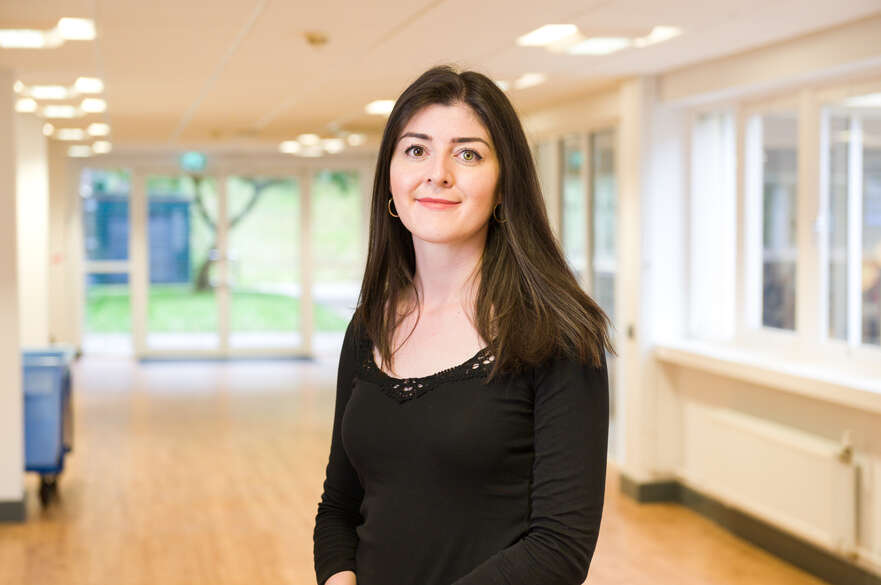Facially expressive people shown to be more likeable and socially successful
Increased use of facial expression – everything from smiles to eyebrow raises – leads to people being seen as more likeable, according to a large-scale study by Nottingham Trent University.
By Helen Breese | Published on 13 June 2024
Categories: Press office; Research; School of Social Sciences;

Analysis of more than 1,500 natural conversations suggests that humans may have evolved more complex facial muscle movements to help us bond with each other.
In the first part of the study, researchers posed as participants in semi-structured video calls with 52 people to record natural reactions and expressions during various everyday scenarios.
The conversations were designed to involve a range of behaviours, including listening, humour, embarrassment, and conflict. To test ability to inhibit facial expression, participants were also asked to keep a still face while their partner tried to make them move.
The same individuals later recorded short video clips of their face while trying to achieve social goals such as looking friendly, appearing threatening, and disagreeing without being disliked.
More than 170 people were then shown clips from a selection of the video calls and recordings and were asked to rate the emotions and expressions being conveyed to see how ‘readable’ the participant was, as well as how likeable they were.
The facial expressivity of each participant was calculated using FACS (Facial Action Coding System), a method of measuring facial muscle activity.

Dr Eithne Kavanagh
To test the findings on a larger scale, the researchers conducted a follow up analysis of unscripted video conversations between 1,456 strangers from an existing dataset, where conversation partners rated how much they liked each other.
The likeability ratings were analysed in relation to the FACS results and other recognised measures, and the scientists found that expressive participants were liked more both by independent raters and by their conversation partner.
They were also found to be easier to read and better able to adapt their facial behaviour to achieve social goals.
In the conflict scenario where participants were offered a bad deal in terms of reward payment for the study, those who were both agreeable and expressive in their negotiations were found to achieve a better outcome.
Dr Eithne Kavanagh, research fellow and lead author on the study at NTU’s School of Social Sciences, said: “This is the first large scale study to examine facial expression in real-world interactions.
“Our evidence shows that facial expressivity is related to positive social outcomes. It suggests that more expressive people are more successful at attracting social partners and in building relationships. It also could be important in conflict resolution.”
The work is part of a European Research Council funded project led by NTU’s Professor Bridget Waller. Individual differences in facial expressivity: Social function, facial anatomy and evolutionary origin (FACEDIFF) is an interdisciplinary project investigating the evolution of facial expression and how this results in benefits or costs in an individual’s social engagement.
Professor Waller said: “This research is important in evolutionary terms as it may explain why humans have developed more complex facial expression than any other species – it helps us to create stronger bonds and better navigate the social world.”
Being facially expressive is socially advantageous by Dr Eithne Kavanagh, Dr Jamie Whitehouse and Professor Bridget Waller from NTU’s Department of Psychology is published in the journal Scientific Reports.
Notes for Editors
Press enquiries please contact Helen Breese, Public Relations Manager, on telephone +44 (0)115 848 8751, or via email.
About Nottingham Trent University
Nottingham Trent University (NTU) received the Queen’s Anniversary Prize for Higher and Further Education in 2021 for cultural heritage science research. It is the second time that NTU has been bestowed the honour of receiving a Queen’s Anniversary Prize for its research, the first being in 2015 for leading-edge research on the safety and security of global citizens.
The Research Excellence Framework (2021) classed 83% of NTU’s research activity as either world-leading or internationally excellent. 86% of NTU’s research impact was assessed to be either world-leading or internationally excellent.
NTU was awarded The Times and The Sunday Times Modern University of the Year 2023 and ranked University of the Year in the Whatuni Student Choice Awards 2023. It was awarded Outstanding Support for Students 2020 (Times Higher Education Awards), University of the Year 2019 (Guardian University Awards, UK Social Mobility Awards), Modern University of the Year 2018 (Times and Sunday Times Good University Guide) and University of the Year 2017 (Times Higher Education Awards).
NTU is the 5th largest UK institution by student numbers, with approximately 40,000 students and more than 4,400 staff located across five campuses. It has an international student population of 7,000 and an NTU community representing over 160 countries.
Since 2000, NTU has invested £570 million in tools, technology, buildings and facilities.
NTU is in the UK’s top 10 for number of applications and ranked first for accepted offers (2021 UCAS UG acceptance data). It is also among the UK’s top five recruiters of students from disadvantaged backgrounds and was the first UK university to sign the Social Mobility Pledge.
NTU is ranked the second most sustainable university in the world in the 2022 UI Green Metric University World Rankings (out of more than 900 participating universities).